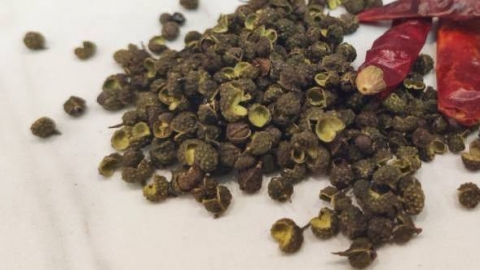What foods must patients with hernia absolutely avoid eating?
Under normal circumstances, patients with hernias must avoid eating spicy and stimulating foods, gas-producing foods, greasy and hard-to-digest foods, overly sweet foods, and raw or cold foods. These foods may easily cause abdominal distension, increase intra-abdominal pressure, or irritate the intestines, possibly worsening hernia symptoms or triggering hernia episodes. Detailed explanations are as follows:

1. Spicy and stimulating foods: Such as chili peppers, Sichuan peppercorns, and excessive ginger or garlic. These foods are highly irritating and can stimulate the gastrointestinal mucosa, disrupt normal intestinal motility, and easily cause constipation or diarrhea. Straining during bowel movements due to constipation significantly increases intra-abdominal pressure, which may worsen or exacerbate the hernia, affecting disease stability.
2. Gas-producing foods: Including soybeans, black beans, onions, sweet potatoes, carbonated beverages, etc. These foods produce large amounts of gas during digestion in the gastrointestinal tract, leading to abdominal bloating and elevated intra-abdominal pressure. This may cause the hernia to protrude further and increase the risk of hernia incarceration.
3. Greasy and hard-to-digest foods: Such as fried chicken, French fries, fatty meats, and excessive amounts of animal offal. These foods are high in fat and slow to digest, placing additional burden on the gastrointestinal tract, causing indigestion and abdominal bloating, indirectly increasing intra-abdominal pressure, which is detrimental to hernia recovery.
4. Overly sweet foods: Including candies, chocolates, desserts, and high-sugar beverages. Excessive intake can stimulate gastric acid secretion, potentially causing gastric discomfort, acid reflux, and intestinal dysfunction, such as bloating or diarrhea, which may interfere with intra-abdominal pressure stability.
5. Raw, cold, and cooling foods: Such as ice cream, chilled beverages, raw fish slices, and cold salads that haven't been heated. These foods can stimulate gastrointestinal vasoconstriction and slow intestinal motility, easily causing gastrointestinal spasms, abdominal pain, or diarrhea. Repeated changes in intra-abdominal pressure may lead to recurrent hernia protrusion.
In daily life, besides adjusting their diet, hernia patients should also avoid strenuous activities such as running and jumping, as well as heavy physical labor like lifting heavy objects. At the same time, they should maintain regular作息 (作息 should be translated as "作息" in Chinese, meaning rest and activity patterns) and good bowel habits, avoid prolonged sitting or holding urine for long periods to reduce intra-abdominal pressure and maintain disease stability.








